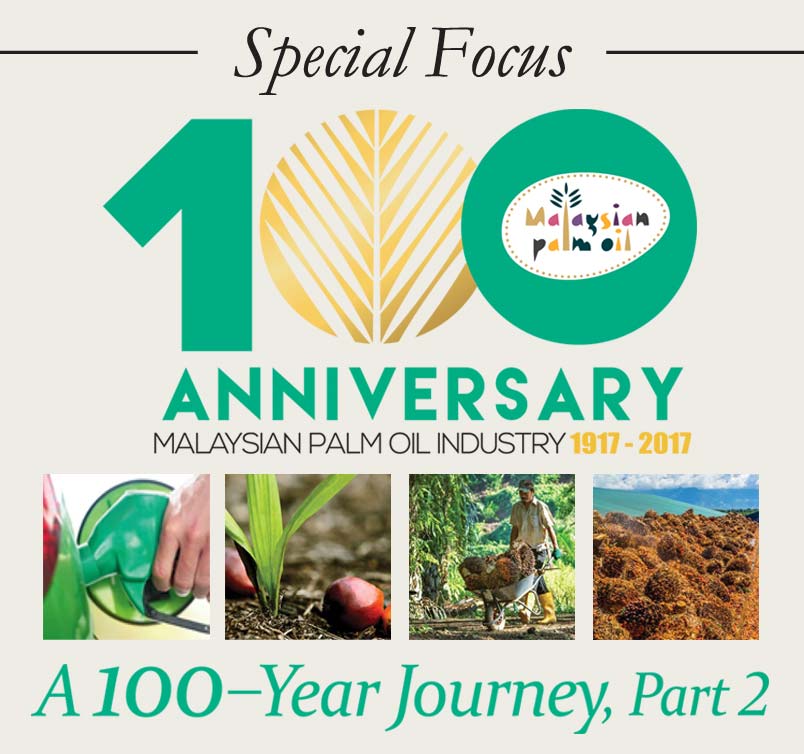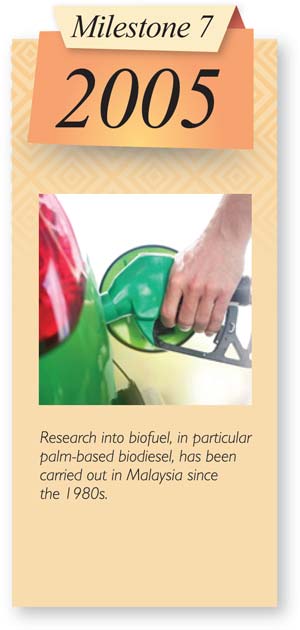



Celebrating Malaysian palm oil
June, 2017 in Special Focus, Issue 2 - 2017

The National Biofuel Policy paved the way for commercialisation of biodiesel and a new high-growth industry in Malaysia.
Depleting reserves of fossil fuels and rising alarm over their negative environmental impact led to escalation of R&D efforts toward renewable and eco-friendly alternatives. The interest brought in new technologies and mandates to increase the global output and use of biofuels.
Malaysia has carried out extensive R&D work on palm-based biodiesel since the 1980s. The National Biofuel Policy was announced in August 2005, facilitating commercialisation of palm-based biofuel, in particular palm biodiesel. A year later, Malaysia’s first commercial-scale biodiesel plant commenced operations in Pasir Gudang, Johor.
Following successful on-road trials of palm biodiesel, the government initiated the B5 programme – a blend of 95% diesel and 5% palm methyl ester (biodiesel) – in June 2011. Used first in the administrative capital Putrajaya, it was extended to the central region the same year and to the southern region by July 2013. The completion of blending facilities in the northern region, as well as Sabah and Sarawak, by mid-2014 enabled B5 biodiesel to reach users nationwide. Since January 2015, the government has mandated the use of B7, in which the percentage of palm biodiesel is increased to 7%.
Multiple grades of Malaysia’s biodiesel are also exported, taking advantage of the indigenous properties and characteristics of palm oil. Apart from being suitable for use in temperate climates, these also meet stringent international specifications, namely ASTM D6751 and EN 14214.